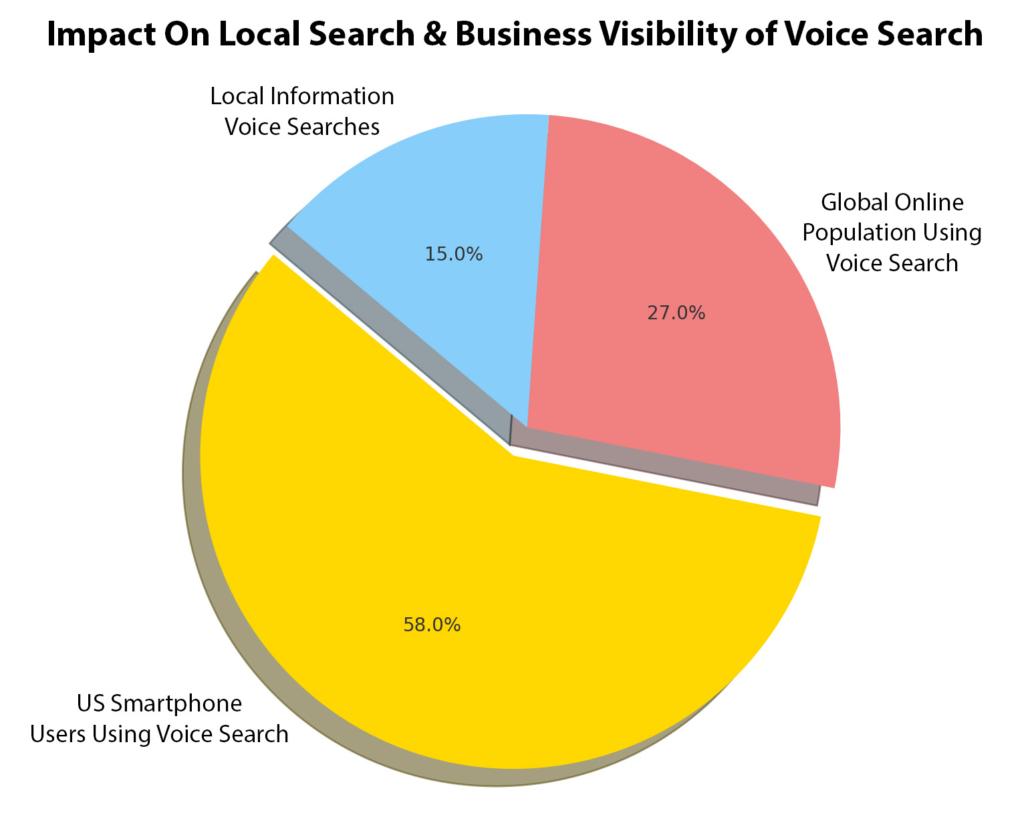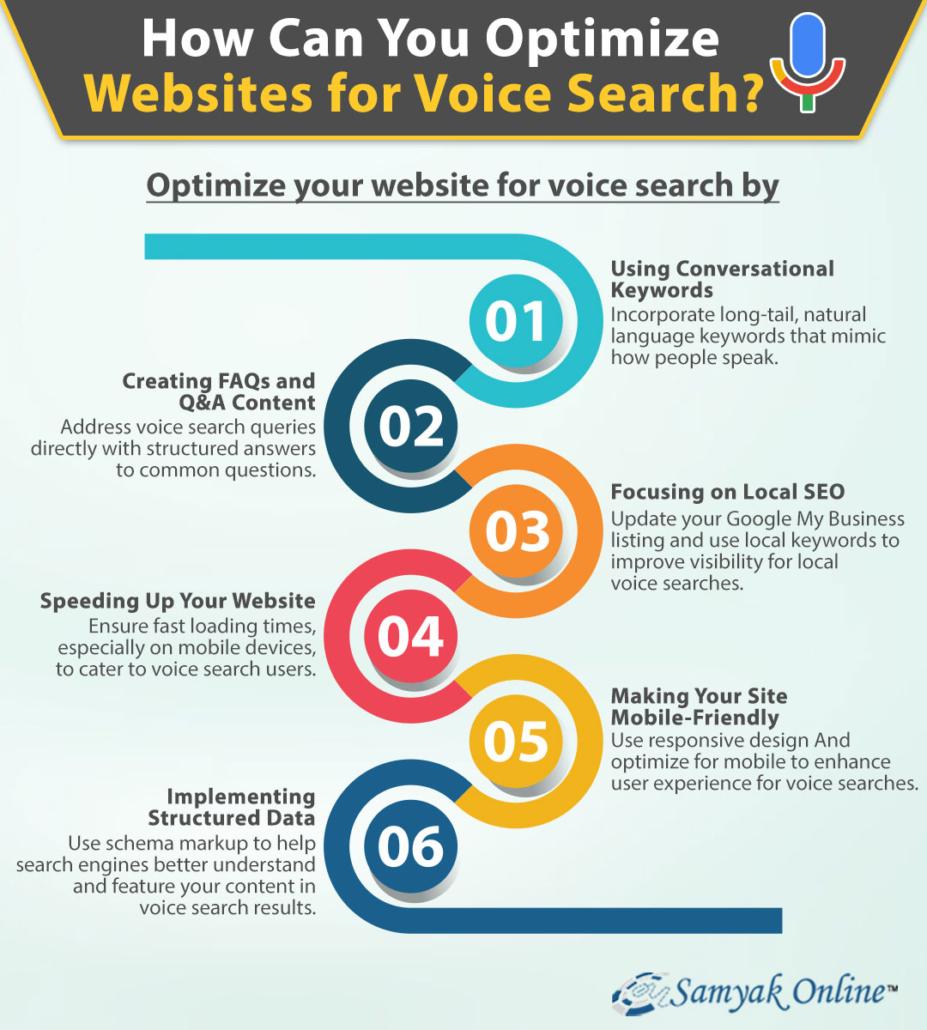What is Voice Search Revolution in SEO?
Last Updated on March 19, 2024 by Subhash Jain
Mastering SEO for the Future of Digital Search Queries
Do you know What Voice Search is? In the past, we typed things into search engines. Now, we talk to our phones and speakers to ask questions. This is called voice search.
As we find ourselves increasingly turning to virtual assistants like Siri, Alexa, and Google Assistant for everything from the day’s weather forecast to the nearest Italian restaurant, it’s clear: the future of search is vocal. But what does this mean for search engine optimization (SEO)? How does the rising tide of voice search queries reshape the strategies businesses must employ to remain visible and competitive in this rapidly changing landscape?
In this exploration, we’re diving into the heart of voice search – its unprecedented efficiency, the shift in user behavior it heralds, and its significant impact on local SEO and business visibility. I’ll unravel the intricacies of SEO evolution in the wake of voice search and provide actionable insights on optimizing for this new frontier. From understanding the nuances of conversational queries to mastering local SEO strategies, I am here to guide you through optimizing your content for the era of voice search.
Hiring Voice SEO experts helps make voice search easier for your business. They know how to match your content with the way people talk on devices like Siri or Alexa. This means more people can find your business when they use voice search. It’s a smart move to stay ahead and make sure customers find you easily. With a deep understanding of user intent and technical SEO, they develop future-proof strategies against evolving digital landscapes, keeping businesses competitive in a voice-first world.
As we embark on this journey, remember: adapting to voice search isn’t just about staying ahead in the SEO game; it’s about embracing a more natural, human way of interacting with technology. Let’s explore how voice search SEO experts are reshaping the digital landscape and how you can optimize your strategies to thrive in this voice-first world.
How has voice search changed the way SEO is done, considering the shift towards natural language and user intent?
Voice search represents a significant shift in how we interact with technology and access information on the internet. This evolution is not just about convenience; it’s reshaping user behaviour and SEO strategies in profound ways. Here’s an exploration of its significance. Here’s why:
- Efficiency and Speed: Voice queries are processed faster than typing, offering users instant gratification.
- Changing User Behavior: With the rise of mobile internet usage, users prefer hands-free, hassle-free interactions.
- Local SEO Boost: Voice search significantly impacts local business visibility, driving foot traffic through location-based queries.
- SEO Evolution: As a key SEO ranking factor, voice search optimization is crucial for maintaining a competitive edge.
How user behavior has changed with the rise of voice search
The convenience of voice search has led to a significant transformation in user behavior. People are now more likely to use voice commands for searching online, especially when multitasking or on the go. This shift necessitates a new approach to SEO that prioritizes natural language processing and question-based queries.
According to Microsoft and Bing, 72% of people use voice search with their digital assistants like Siri, Alexa, Cortana, and Google Assistant. This means almost three out of four people talking to their devices are asking for information this way
The different ways voice search influences local SEO and business visibility
Local businesses stand to gain immensely from the voice search revolution. With queries often being location-specific, such as “Italian restaurants near me,” businesses optimized for voice search are more likely to capture local traffic.
- Semrush found that 58% of people in the U.S. with smartphones use voice search to learn about products or services. This means they use voice search when thinking about buying something and when they decide to buy.
- Google’s research says that 27% of people worldwide use voice search on their phones.
- Also, voice searches are three times more likely to be for local information, according to Search Engine Land’s research

Here’s the pie chart showing the impact of voice search on local search and business visibility, based on the statistics. It highlights the percentage of U.S. smartphone users using voice search for products or services, the global online population using voice search, and the significance of voice searches for local information.
Voice search is becoming increasingly important for e-commerce and mobile engagement
Voice search is becoming very popular, making up about half of all Google searches, mostly on mobile phones. This trend points to a big opportunity, especially for online shopping.
According to Statista, the amount of money spent using voice assistants for shopping is expected to increase by 400% from 2021 to 2023, jumping from 4.6 billion to 19.4 billion US dollars worldwide.
Adding voice technology to mobile apps is essential for businesses to stay competitive, as it makes apps more user-friendly and efficient.
This tech is changing many industries by making services easier to use and creating new chances for businesses, especially local ones. Voice search is also a key trend in mobile app development for 2023.
- Mobile Usage Growth: In 2021, mobile devices made up nearly 54% of global website traffic, a number that’s likely to grow. Statista highlights how crucial it is for businesses to make their websites mobile-friendly to reach more users.
Over the years, voice search has revolutionized SEO strategies
Voice search is making a huge impact right now and its influence only seems to be growing. It’s particularly important for local SEO, as many people use voice search to find nearby businesses or services.
This means that for marketers, focusing on local SEO is crucial to appear prominently in voice search results. With the evolution of smart speakers and virtual assistants, optimizing for voice search has become a necessity, not an option. It’s increasingly considered a critical factor in SEO rankings because it aligns with the natural way people talk.
But is the buzz around the so-called “Voice Search Revolution” reality or just hype?
The buzz around the “Voice Search Revolution” is definitely not just hype—it’s very real and has been steadily growing since around 2021. Voice search technology has advanced significantly over the years, making it more accurate, efficient, and accessible to users around the world.
Over the years, voice search has transformed the way we approach SEO, comparing trends and strategies between 2021 and 2024
Initially focusing on natural speech tendencies and optimizing for long phrases, strategies have evolved to include mobile device compatibility, local listing optimization, and tailoring content for answering questions. These changes reflect the shift towards enhancing user experience and catering to the growing reliance on voice search for accessing information
To shed some light, consider these stats: 41% of adults and 55% of teens use voice search daily, according to Google.Moreover, 20% of all mobile queries on Google are voice searches. Voice searches tend to use longer, more conversational keywords and question-based phrases. By optimizing your site for these aspects—incorporating long-tail keywords, conversational language, and frequently asked questions—you can significantly improve your site’s visibility in search results. This strategic shift is essential for businesses aiming to stay competitive in the digital landscape.
How Can You Optimize Websites for Voice Search?
Optimize your website for voice search by incorporating conversational keywords, crafting FAQs and Q&A sections for direct queries, enhancing local SEO with updated Google My Business listings, improving site speed for mobile users, ensuring mobile-friendliness with responsive design, and utilizing structured data markup for clearer search engine understanding.
Below are the important steps to improve your visibility and user experience in the voice-driven search landscape.
How incorporating natural language keywords improves your site’s visibility for voice searches
To optimize a website for voice search, focus on natural language and question-based queries since people speak more conversationally than they type. The key to mastering voice search lies in understanding how people naturally speak. Unlike traditional keyword stuffing, voice search demands a more conversational tone.
Why It Matters: Statistics show that 50% of all searches will be voice searches by 2023, according to ComScore.
How to Implement: Focus on long-tail keywords and phrases that mimic everyday language. Tools like Answer the Public can help identify common questions related to your topic. With over 50% of searches expected to be voice-based, incorporating long-tail keywords that mimic how real people talk can boost your visibility.
Why FAQs and Q&A formats are essential for catering to voice search queries
FAQs and Q&A formats naturally cater to the conversational tone of voice searches, providing direct answers to user queries.
The Benefit: This approach not only enhances the user experience but also increases the chances of your content being featured in voice search results. How to Implement: Identify common questions in your niche and create comprehensive, concise answers. Consider using tools like SEMrush to research relevant queries.
What strategies can enhance local SEO specifically for voice search optimization
Also, ensure your local business listings are accurate and complete; remember, a significant chunk of voice searches are local.
To make your business more visible in voice searches, make sure your Google My Business (GMB) listing is up-to-date. This is important because more than half of shoppers use Google to find new brands. Keep it simple and focus on clear, conversational language that matches how people naturally talk.
Local SEO is incredibly important for businesses looking to capture the attention of users performing “near me” searches through voice.
According to Google, “near me” searches have grown more than 130% year over year.
Key Strategies: Ensure your Google My Business listing is up-to-date, encourage positive reviews, and use local keywords in your content.
How optimizing page speed can benefit mobile users and improve voice search
Enhancing your website’s mobile-friendliness and loading speed is crucial too, as most voice searches are done on mobile devices. In the age of instant gratification, a delay of even a second can lead to lost visitors.
Optimizing your site’s speed enhances the user experience, a crucial factor for voice search optimization.
The Impact Optimizing Page Speed and Mobile User Experience According to Google, a one-second delay in mobile load times can impact conversion rates by up to 20%.
Strategies for Improvement: Minimize file sizes, leverage browser caching, and use a content delivery network (CDN) to improve load times.
What are the key aspects of enhancing mobile optimization for better voice search results?
With the majority of voice searches conducted on mobile devices, ensuring your website is mobile-friendly is non-negotiable.
Why It’s Essential: Google’s Mobile-First Indexing is now the standard, which means Google predominantly uses the mobile version of the content for indexing and ranking.
Optimization Checklist: Use responsive design, optimize images, and ensure touch elements are appropriately spaced.
Why implementing structured data markup is crucial for enhancing voice search results
Incorporate schema markup to help search engines understand your content better, aiming for featured snippets that voice assistants often read out loud. Voice search queries are 3 times more likely to be local.
Structured data markup helps search engines understand the content of your site, making it easier to provide precise answers to voice searches.
Evidence for Effectiveness: A study by Moz found that pages with structured data ranked four positions higher in search results on average.
Implementation Tips: Use schema.org to mark up your content, including business hours, product information, and events, making them more accessible for voice search queries.

By adapting to these strategies, you’re essentially aligning with how a growing number of users are searching—through a casual chat with their digital assistant. You can improve your visibility in voice search results, meeting the growing trend of voice search usage.
Frequently Asked Questions
Regular updates are essential to keeping your content relevant and authoritative. Aim for at least quarterly reviews, especially for your FAQs and structured data.
Absolutely! Voice search optimization can improve your online visibility by driving more traffic to your site and enhancing brand recognition.
Pro Tips
Since our exploration in 2018 of how voice search would revolutionize SEO in ‘Voice Search will Change SEO in 2018 – Is your Website Ready for Voice Search?‘, the landscape of digital interaction has continuously evolved. This evolution underscores the necessity for businesses to not only adapt but also continuously monitor and refine their website’s optimization strategies for voice search. As voice search technology becomes increasingly sophisticated and user habits shift towards more conversational, hands-free queries, revisiting and updating your SEO tactics is crucial. By incorporating natural language keywords, leveraging structured data markup, optimizing page speed and user experience, enhancing mobile optimization, creating FAQs and Q&A formats, and incorporating local SEO strategies, you position your brand to thrive in the digital age.
About Author
Subash Jain and his team at Samyak Online SEO Services specialize in the innovative realm of voice search SEO, leveraging more than 20 years of extensive experience in the SEO industry. Recognizing the shift towards voice-activated searches, Subash has skillfully steered his team to master the nuances of optimizing for voice queries, setting Samyak Online apart as leaders in adapting SEO strategies to this cutting-edge technology. Their commitment to excellence and a deep understanding of voice search dynamics ensure clients receive unparalleled service, poised to excel in the modern digital landscape.Speak the language of your customers. Get found with Samyak Online’s Voice SEO Services


Leave a Reply
Want to join the discussion?Feel free to contribute!